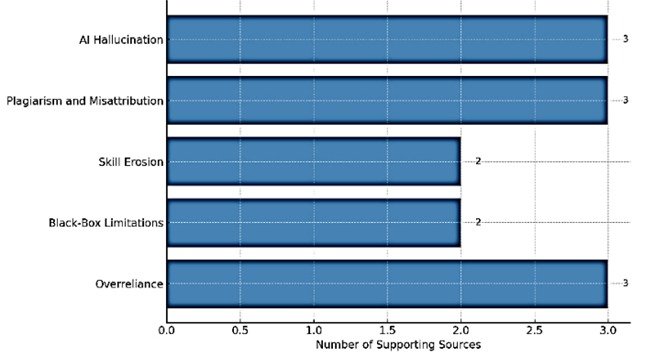Responsible integration of generative artificial intelligence in academic writing: a narrative review and synthesis
Keywords:
Generative AI, Academic Writing, Academic Integrity, Ethical AI Use, AI in Higher Education.Abstract
The ethical integration, risks, and institutional reactions related to the use of generative Artificial Intelligence (AI) in academic writing are examined in this narrative review and conceptual synthesis. Concerns regarding authorship ethics, academic integrity, and cognitive development have surfaced as a result of the quick adoption of AI tools like ChatGPT in higher education. This review identified three main themes regarding the responsible integration of generative AI in academic writing: 1. Significant risks such as plagiarism, fake or hallucinated citations, and data fabrication; 2. ethical integration of AI that emphasizes transparency, human oversight, and meaningful contribution; and 3. expanding institutional frameworks and policies intended to ensure responsible AI use. The review revealed clear risks of plagiarism, hallucinated content, citation errors, and authorship problems, hence the need for transparency, responsible use, and clear disclosure to uphold academic integrity in AI-assisted writing. It also revealed promising advancements in institutional responses; however, significant challenges remain in policy and compliance, faculty training, and ethical oversight particularly regarding the role of AI in research evaluation and publication processes. Among others, it is recommended that institutions should adopt a balanced stance to AI in academic writing by encouraging transparency and providing training on potential risks such as misuse or misinformation.

Published
How to Cite
Issue
Section
Copyright (c) 2025 Authors

This work is licensed under a Creative Commons Attribution 4.0 International License.




